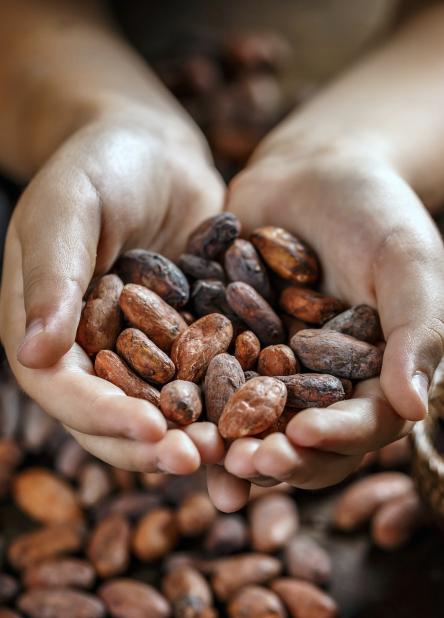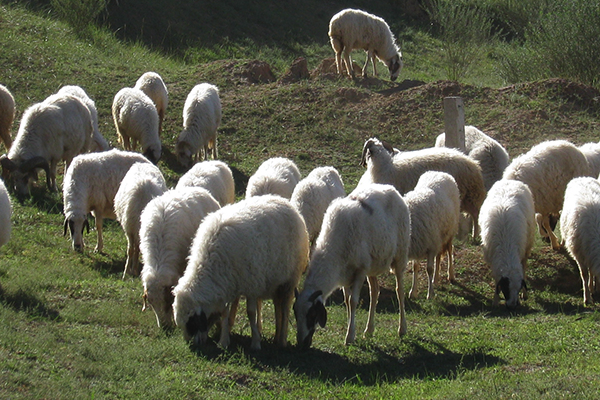
Indonesia: Upgrading bulk cocoa into fine cocoa
25/01/2024
The case study highlights how Indoensia focused on fermentation to increase quality of cocoa beans by setting on quality standards, providing training and purchasing fermented beans at higher prices, and conducting research on fermentation techniques.

Geographical Indications Environment & Sustainability: wide application in diverse agroecological zones and special agricultural products in China
23/01/2024
The case study focuses on how Geographical Indications Environment & Sustainability (GIES) standard system/ methodology can be widely applicable in diverse agroecological zones and products to trace the geographical origin of special agricultural products.

China: GIES – an innovative open science solution to trace the geographical origin of special agricultural products
23/10/2023
The aim of this document is to facilitate and encourage cross sharing of knowledge. The case study highlights China's innovative open science solution to trace the geographical origin of special agricultural products.

Thailand: leading science-based research on food composition and healthy recipe formulation to enhance nutrition
04/07/2023
The case study highlights how the Kingdom of Thailand is focused on improving capacity of Institute of Nutrition, Mahidol University (INMU) by utilizing years of expertise on research and education in food and nutrition to inform and to make progress in reducing malnutrition in the country.

Cambodia: Geographical indication registration of Kampot pepper builds brand recognition, raising producers’ income and spurring local development
26/06/2023
The case study highlights how the Kingdom of Cambodia registered its Kampot pepper for Geographic Indication to build international brand recognition. GI designation has improved the export by more than 250% in 2017 and is benefiting smallholder farmers as well as expected to bring investment in the region.

Viet Nam: One Commune One Product programme reduces the urban–rural divide
26/06/2023
Rural poverty is three times higher than urban areas in Vietnam. Inadequate human capacity , market linkage, and enterprise development is lagging. Under National Target Program (NTP), One Commune One Product(OCOP) Programme aims to promote rural economy through capacity development of OCOP producers, improve the quality of product, and marketing and promotion.

Thailand: the grassroots economy reaps benefits from targeted support under One Tambon One Product
01/06/2023
The One Tambon One Product (OTOP) programme design adopted from learnings of 2001 OTOP to strengthen targeted support to build entrepreneurial skills and effective marketing tools and the establishment of local facilities accessible to the local people, to provide hands-on support. The reinforced support measures in the 2010s increased sales value of OTOP product and income growth for producers.

How global branding like GI ensures trade and local development – the case of Cambodia’s Premium Kampot Pepper
01/09/2022
Kampot pepper has not only expanded export volume to new high-value markets, but also gained a significant price premium following the establishment of the geographical indication (GI). The Ministry of Commerce has rigorous mechanisms in place to maintain the credibility of the GI status for export markets.

One Tambon One Product (OTOP) to promote grassroots economy in Thailand
01/09/2022
The One Tambon One Product (OTOP) programme was launched in 2001 as a measure to strengthen the communities to improve the well-being of the people by producing or managing locally available resources including local wisdom into quality products. While the producers who were prospective or already producing good products could utilize the opportunities given well....

Protection of crested ibis (Nipponia nippon) habitat with organic black rice in Caoba Village, Yang county, Shaanxi Province of China
31/08/2022
Nearly-extinct crested Ibis (Nipponia nippon) habitat is protected through trinity harmonious development of organic industry, eco-tourism and targeted poverty alleviation. The world population of crested ibis increased from seven in 1981 to over 7 000 in 2021, of which more than 3 000 birds were in Hanzhong city where Yang county belong.

Geographical Indications Environment & Sustainability (GIES): An innovative initiative to promote scientific research for balanced development
15/08/2022
In September 2021, the Decade Initiative on Geographical Indications Environment & Sustainability (GIES) 2021–2030 was launched in China. GIES promotes monitoring of the ecological environment related to the geographical habitat and product development, by using the Internet of Things (IoT) and big data system...

One Commune One Product in Viet Nam
01/08/2022
The One Commune One Product (OCOP) programme is implemented nationally in Viet Nam as a rural economic development strategy since 2018, by building on the provincial initiatives and the experiences from Japan and Thailand. It is a key program for rural economic development in the direction of promoting and adding value to internal resources...

Development of GI-protected Baoshan Arabica coffee in Xinzhai village, Baoshan city, Yunnan province of China
01/08/2022
Xinzhai village of Baoshan city in Yunnan province is known as the number one coffee village in China, despite being off the coffee belt. Lujiang town, where Xinzhai is located, is the birthplace of large-scale coffee production in China, dating back to 1952.
